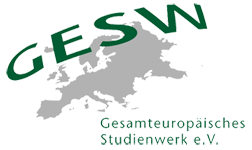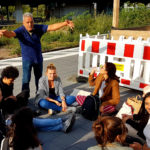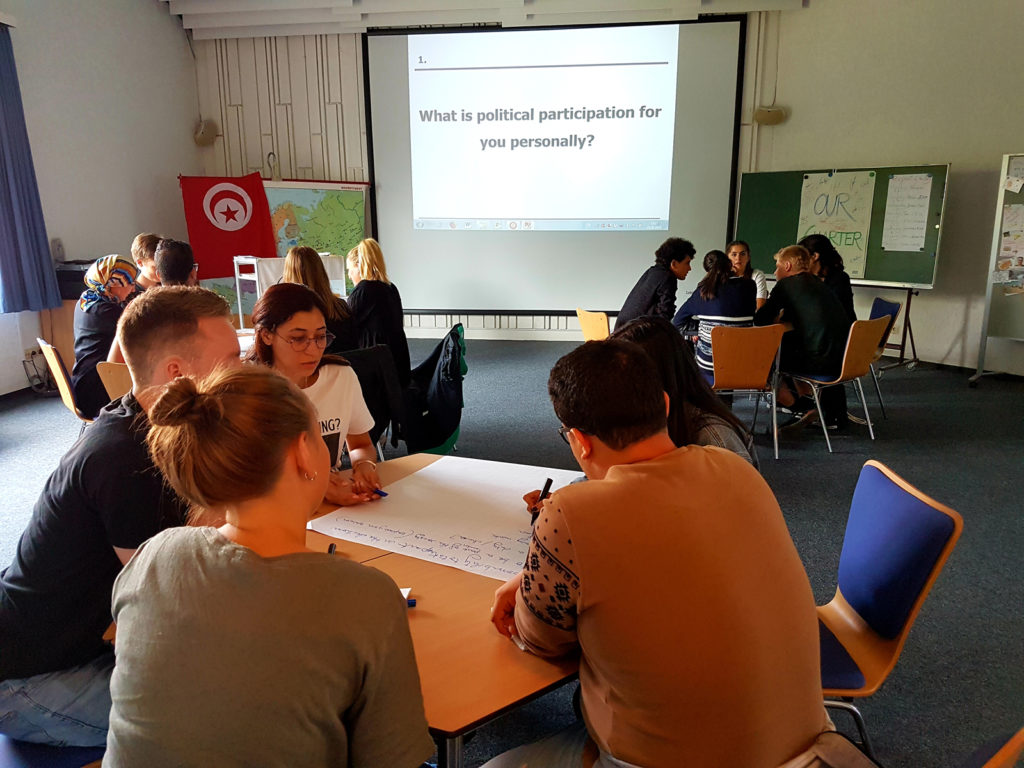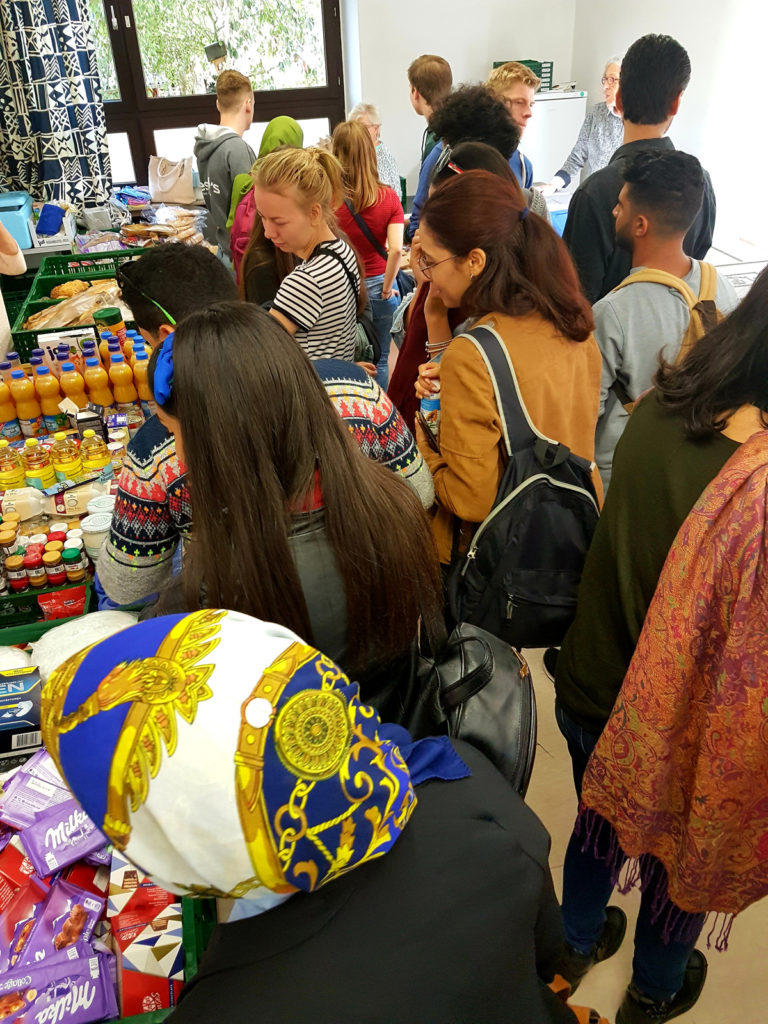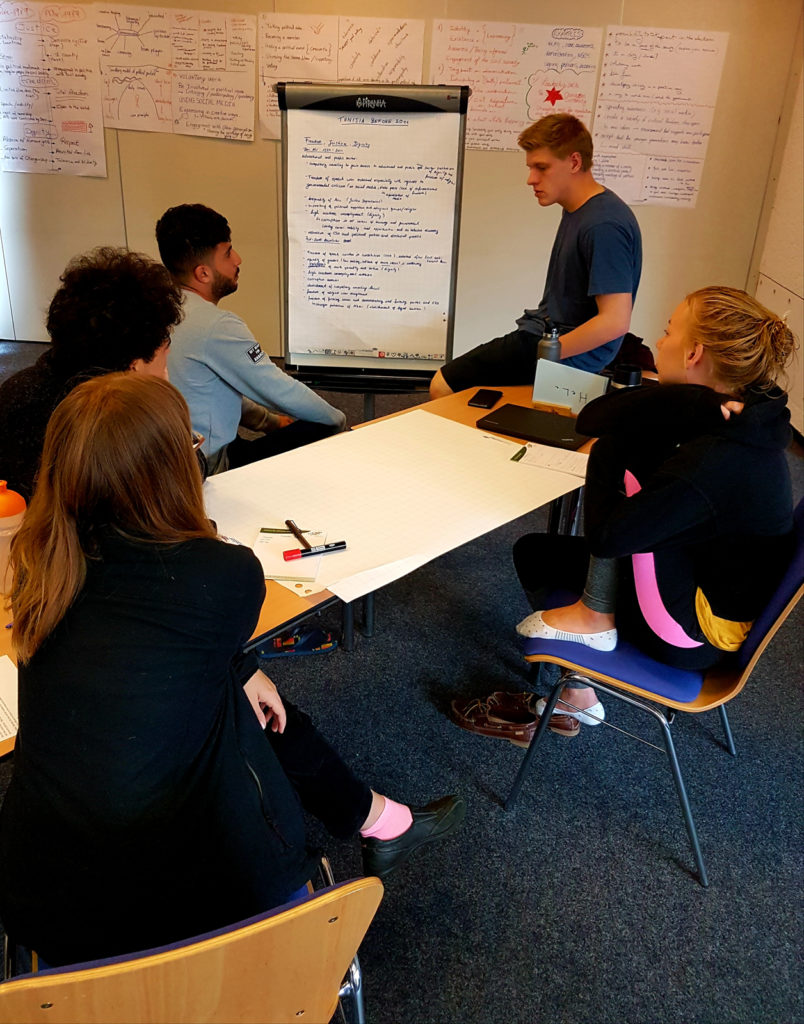Report of the German-Tunisian Exchange Seminar by the GESW
by Alexander Reiffenstuel
The German Tunisian exchange seminar, hosted by Gesamteuropäisches Studienwerk (GESW), was a truly incredible and unique experience, a week full of exchange and collaboration, which has left every participant not only with a deeper understanding of the role of Civil Society Organizations (CSO) in a transformative democracy, such as Tunisia, but also created a series of irreplaceable memories.
After every participant had arrived on the 3rd of September, all of us met in the dining room and had a first chance to meet and get to know everybody. Afterwards, we held our first meeting learning the names, backgrounds and fields of study of each participant through a series of exercises. Then, everybody contributed in creating a project charter, of which all themes and rules (esp. respect) were followed throughout the seminar. After dinner, some of us decided to visit with the Tunisians a German grocery store and gather some traditional German snacks and drinks for the first evening together, followed by us all regrouping in the billiard room, allowing all of us to grow as a group by playing games, listening to music and just making conversation in smaller groups. In hindsight the lounge offered an ideal space to familiarize with the other participants, as it offered sports equipment, a music platform, board games and was perceived by everyone as a safe space for talking. We spend the next morning discovering Vlotho using a Geocaching app, searching for items and places within the city. Then, we visited the Vlotho Tafel, giving most of us a new insight into the German civil society and revealing too many Tunisians the issue of poverty even within smaller communities of Germany.
The following workshop, regarding identity and empowerment, exposed how most thoughts and ideas were shared by most participants, especially with regards to our perception of development within society and expectations at our government. In the evening, we viewed a Tunisian film from the 70s, surprising some of us German participants positively by the lack of censorship, with regards to romance and the role of sex. On Thursday we had some free time in the morning, allowing some participants to get together for some yoga and others for some tea and discussion, allowing us to grow even closer together.
In general, it must be noted, that there existed a strong balance between work within the workshops and free time, allowing for personnel and private exchanges and discussion, which I believe promoted a warm and discursive atmosphere from the beginning on. During our visit at the town hall, we didn’t just get an incredible view over Vlotho but also had a long and wide discussion regarding challenges, faced by smaller cities, concerning current political issues, such as climate change, the rise of populism and the increasing role of social media. The workshop in the afternoon, regarding civic engagement, allowed us to exchange in smaller groups our views regarding civic engagement and everyone shared their ways of participation, sparking different ideas of possible future contribution within CSO’s to support our country either in their transformation towards democracy or by stabilizing it. Additionally, it was interesting to see, the degree to which most of the Tunisians were taking part in the Civil Society Organization and their trust towards these institutions compared to that viewed towards political parties. After this, the Tunisian group leader presented us with a short overview and introduction regarding the Arab Spring in Tunisia and some of its developments. The next morning we took the train to Bielefeld, our first excursion together. The visit to the World House Bielefeld, was an interesting experience, as it expanded our understanding of social issues within the world community and sensitized us regarding conflict resolution and development aid, using creative activities. After pizza, we split up in smaller binational groups and discovered Bielefeld in our ways. The train ride back allowed some of us to engage again in deep conversations regarding life in Tunisia and Germany.
On Saturday, we had a rather exhausting, yet sensational day. We started with a workshop in which the national groups brainstormed about Germany’s and Tunisia’s pre- and post-revolution situation, focusing on the themes of freedom, justice and dignity. This exercise revealed, that since both countries shared a similar pre-revolution situation and Germany also underwent a difficult road towards democracy, that the situation in Tunisia is part of a bigger picture development. This workshop helped us understand the difficult road every country faces, undergoing a democratic transformation and that even countries like Germany are still burdened by their dictatorial past (GDR government), it also made us a bit more sensitive to the difficulties that Tunisia faces today and that these are part of a transformative process. Thus, even though many issues do lie ahead, the shaping of a foundation for a transformation towards democracy in Tunisia is underway. The social market economy workshop contained a simulation in which we came together in small bi-national groups and had to decide on how we would use 50 million Euros of aid money on developments on an imaginary island, showing us the difficulties of negotiating a consent regarding money spending and how different groups prioritized different sectors of the economy. After dinner, most of us decided to go on a walk and explored the castle of Vlotho, enjoying our last evening in Vlotho. We spend our last day in Vlotho, working on different scenarios regarding the year 2035 and how we believe Tunisia and Germany would be politically, economically, environmentally or socially characterized, we subsequently presented our ideas using a set of different methods. These scenarios for once revealed a certain optimism regarding political developments yet were plagued by widespread pessimism regarding environmental developments. Once we arrived in Berlin, after an entertaining bus ride, and had dinner we all gathered for a Karaoke night and had an indescribable and unique experience, the fact that nobody had any inhibitions to sing in front of the group revealed the trust and friendship within our binational group. Even though the last day was plagued by rain and cold weather, we all managed to enjoy the German capital, by visiting the East Side Gallery, the Brandenburg Gate, the Parliament, the Victory Column, the Mall of Berlin and many other traditional hotspots. Every Tunisian was surely stunned by the two-sided coin Berlin is, rich culture and wealthy malls on the one side and poverty within the East on the other side, the last reflection of the transformative challenges Germany and Berlin still face 30 years after the revolution.
All in all, the whole seminar was an incredible experience, giving us Germans a unique insight into the complexity of Tunisian politics and democratic developments which have taken place since 2011. As well as showing us that democracy is a privilege which relies on a population committed to a democratic mentality, assisting the government through Civil Society Organizations and being ready to defend its freedoms and rights.
Alexander Reiffenstuel is a German participant of the project „Living and Shaping Democracy“ at GESW and ATACJL. He studies Islamic Studies in Berlin.
The exchange program is part of the German-Tunisian Transformation Partnership and supported by the German Federal Foreign Office.
